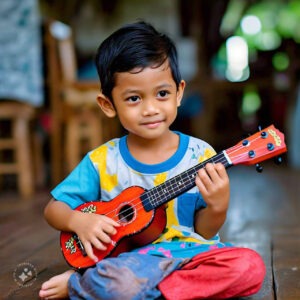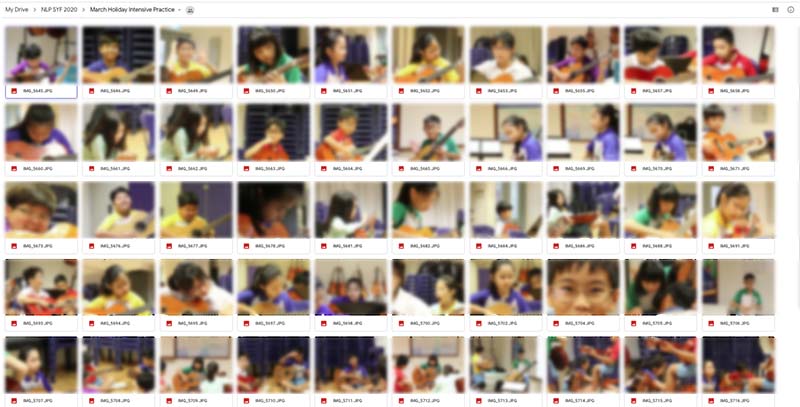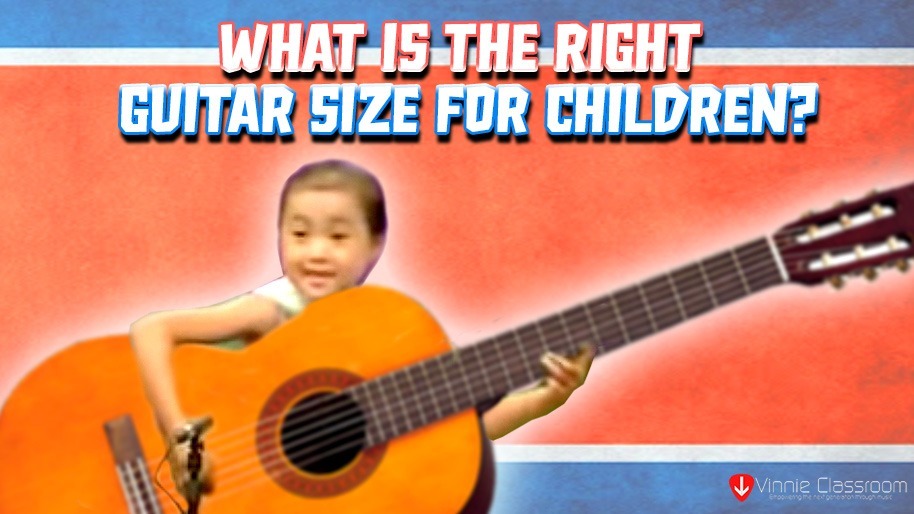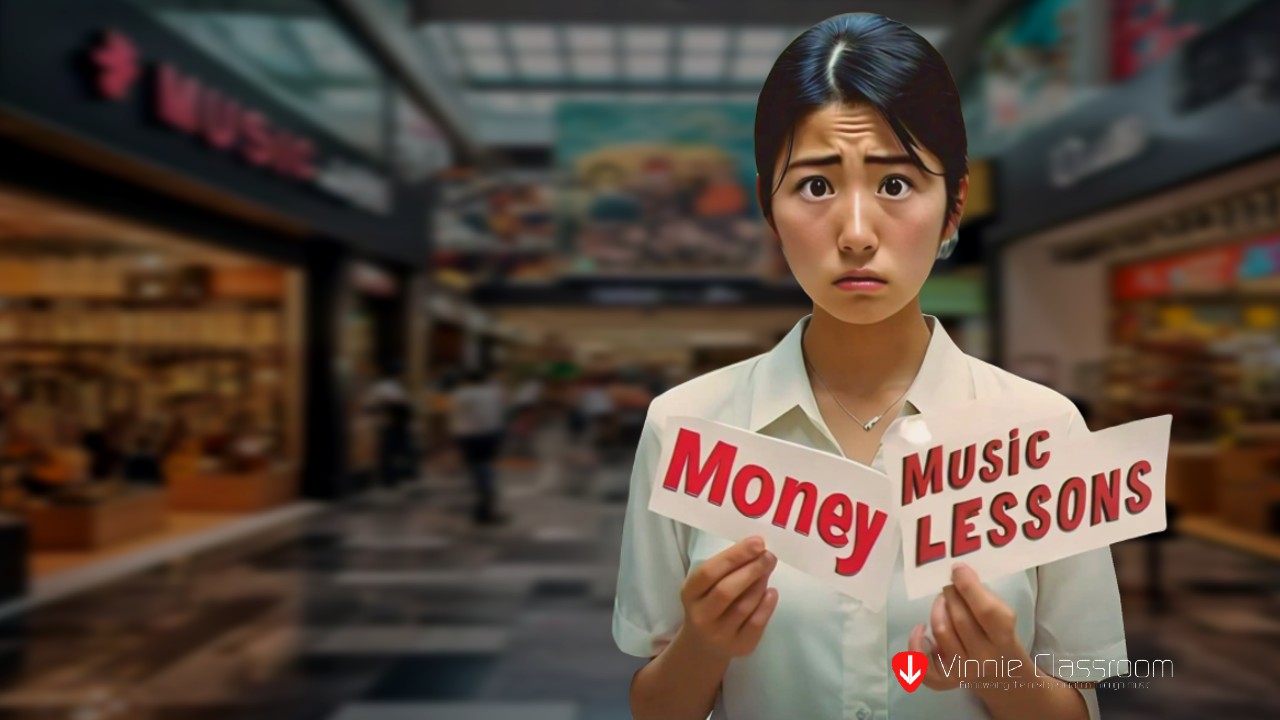
True initial cost of music lessons in Singapore – Guitar, Piano and Drums!
Parents are often drawn to music lessons by the appeal of low fees, but many are unaware of the actual initial costs involved in Singapore, which can lead to unexpected surprises. From purchasing instruments and equipment to the potential downsides of choosing a less experienced music school, the financial commitment goes beyond just lesson fees. In this article, we aim to uncover the true costs of sending a child to music lessons and helping parents make informed decisions.
For those in a hurry, here are the estimated lowest possible cost for each instrument…
- Piano: $300 for Keyboard, $1000 for upright Piano
- Ukulele: $50
- Acoustic Guitar: $200
- Electric Guitar: $200 for Electric Guitar, $120 for Electric Guitar Amplifier
- Bass Guitar: $250 for Bass Guitar, $110 for Bass Amplifier
- Classical Guitar: $180
- Drum Kit: $500 for Acoustic Drum Kit, $600 for Electronic Drum Kit
Piano and Keyboard
A digital piano or keyboard typically costs between SGD 300 to SGD 2,000. Acoustic pianos start around SGD 3,000 and go up to a five- or six-figure price tag depending on the brand and model.
What to look out for: Piano
When shopping for your first piano for your music lessons in Singapore, consider the following: whether to choose an acoustic or digital piano, depending on your space and budget. Look for weighted keys that mimic the feel of an acoustic piano, which is essential for building proper technique. Consider the size, as smaller keyboards may lack the full 88 keys needed for classical training. Don’t forget additional costs like a sturdy bench, stand, and pedals. Lastly, read reviews or try the piano in-store to ensure quality sound and build.
What to look out for: Keyboard
When shopping for your first keyboard, consider the number of keys, ideally aiming for a full 88-key model or at least 61 keys for beginners. Ensure the keys are touch-sensitive or weighted to mimic the feel of an acoustic piano. Look for built-in learning features, such as metronomes or lesson modes, and check for connectivity options like MIDI or USB ports for future digital integration. Portability, sound quality, and additional accessories like stands, pedals, or benches are also key factors to keep in mind.
Ukulele
Beginner ukuleles are affordable, starting at around SGD 40 to SGD 150. A higher-end model can go as high as $4000-$5000.
Acoustic Guitar
An entry-level acoustic guitar ranges from SGD 150 to SGD 500. A professional model can range from $4000 to $8000.
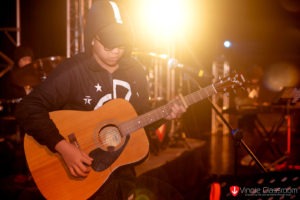
When shopping for your first acoustic guitar, consider body shape and size (dreadnought, concert, etc.) for comfort and sound preference. Check out this youtube link for a better understanding on the shape and size of an acoustic guitar. Tonewood (like spruce or mahogany) refers to the type of wood that the guitar is made with, often affecting the overall tone of the guitar. However this isn’t much of an issue as most entry level uses laminated wood instead of solid wood due to cost. Check for action (string height) to ensure it’s beginner-friendly, as high action can be harder to play. Test the intonation by playing up the neck to ensure it stays in tune at higher frets. Look for reputable brands and check for a solid build with no visible flaws. Lastly, consider including accessories like a gig bag, tuner, and picks.
Electric Guitar
Electric guitars are typically more expensive, ranging from SGD 300 to SGD 800 for beginners. For professional models, it ranges from $4000 to $12000 or more. Additionally, you’ll need an amplifier, which costs around SGD 100 to SGD 300. You may also consider a headphone amplifier and listen to your guitar through your earphones, albeit having around the same price tag.

When shopping for your first electric guitar, consider the body style (solid, semi-hollow, or hollow) for comfort and tone. Check the pickups (single-coil vs. humbuckers) to match your desired sound—cleaner or heavier tones. The neck profile should feel comfortable in your hand, and the scale length affects string tension and playability. The type of bridge (Fixed, 6-point tremolo, or 2-point term, etc) that matches the style of music you desire to play. Ensure the intonation and action are set up properly for ease of playing. Additionally, factor in accessories like an amplifier, cables, and a tuner to complete your setup.
Bass Guitar
Beginner bass guitars cost between SGD 300 to SGD 700, with a small amplifier adding another SGD 100 to SGD 300.
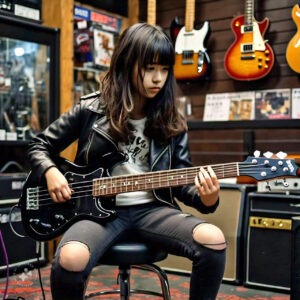
Drum Kit
A basic electronic drum kit is priced around SGD 400 to SGD 1,000, while acoustic kits start at about SGD 600 and can go much higher.
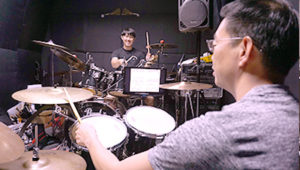
When shopping for your first drum kit, consider whether you want an acoustic or electronic kit, as both offer different sound experiences. Acoustic drum kit feels and sounds right to most drummers and are much preferred, however electronic kit offers the ability to play late into the night without disturbing your neighbors or family members. Look at the build quality of drums, ensuring the shells are sturdy and the hardware is durable. Make sure the size suits your practice space, and check for included components like cymbals, a hi-hat, and a bass drum pedal. Additionally, consider drumsticks, a drum throne, and soundproofing accessories to complete your setup, especially if you’re playing in a shared or small space.
The true initial cost of music lessons
The cost of music lessons in Singapore can vary widely, with some as low as $15 per hour can easily be found online. However, this raises concerns about the teacher’s qualifications and experience. At Vinnie Classroom, our teachers regularly attend workshops, masterclasses, and clinics with renowned practitioners. We put our focus on pedagogical methods and carefully craft holistic learning experiences. In a music school setting, our teachers can share knowledge and resources, creating a more enriching environment. Additionally, schools like ours can provide a safe and conducive learning space, recitals, and examinations, ensuring a comprehensive musical education. Something that would be challenging for private music educators otherwise.
In conclusion, music education is not the cheapest enrichment program you can sign your child up for. However, the benefit of sending a child to music lessons is immeasurable. I’ll leave you with a quote from a music educator workshop we attended just yesterday.
“The arts are not a way to make a living. They are a very human way of making life more bearable. Practicing art, no matter how well or badly, is a way to make your soul grow.” – Kurt Vonnegut

Don’t take our word for it, take a Trial Lesson with us!
Contact us if you wish to find out more! 🙂

